
-
Find the right food for your petTake this quiz to see which food may be the best for your furry friend.Find the right food for your petTake this quiz to see which food may be the best for your furry friend.Featured products
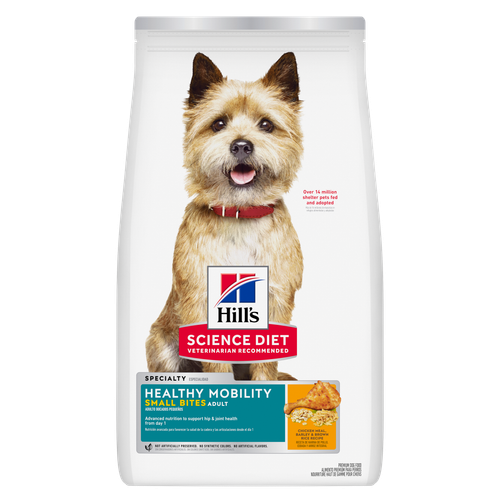 Adult Healthy Mobility Small Bites Chicken Meal, Barley & Brown Rice Recipe Dog Food
Adult Healthy Mobility Small Bites Chicken Meal, Barley & Brown Rice Recipe Dog FoodAdvanced nutrition to support hip & joint health from day 1
Shop Now Adult Light Large Breed Chicken Meal & Barley Recipe Dog Food
Adult Light Large Breed Chicken Meal & Barley Recipe Dog Food18% lower calories vs. Science Diet Large Breed Adult
Shop Now Adult Sensitive Stomach & Skin Small & Mini Chicken Recipe Dog Food
Adult Sensitive Stomach & Skin Small & Mini Chicken Recipe Dog FoodHill's Science Diet Sensitive Stomach & Skin Small & Mini dry dog food is tailored nutrition for Small & Mini dogs while being gentle on stomachs. Nourishes skin & promotes a lustrous coat.
Shop NowFeatured products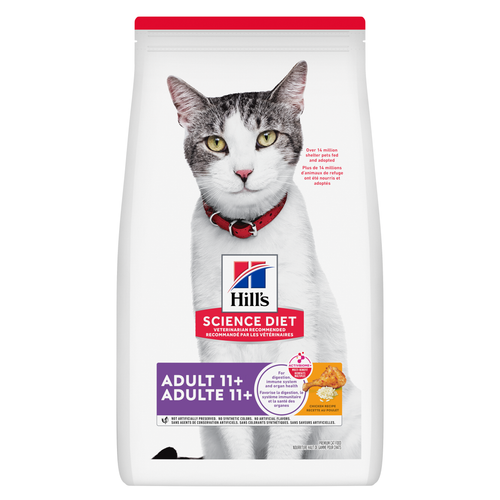 Adult 11+ Chicken Recipe Cat Food
Adult 11+ Chicken Recipe Cat FoodSupports brain health & beautiful fur. Helps keep immune system, heart & kidneys healthy.
Shop Now Adult Healthy Cuisine Seared Tuna & Carrot Medley Cat Food
Adult Healthy Cuisine Seared Tuna & Carrot Medley Cat FoodDelicious seared tuna paired with tender carrots in a mouthwatering sauce
Shop Now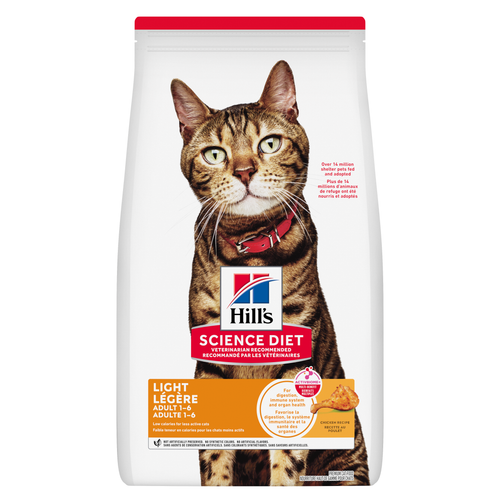 Adult Light Chicken Recipe Cat Food
Adult Light Chicken Recipe Cat Food20% lower calories vs. Hill's Science Diet Adult
Shop Now -
Dog
- Dog Tips & Articles
-
Health Category
- Weight
- Food & Environmental Sensitivities
- Urinary
- Digestive
- Joint
- Kidney
- Dental
- Cancer
-
Life Stage
- Puppy Nutrition
- Adult Nutrition
- Senior Nutrition
Cat- Cat Tips & Articles
-
Health Category
- Weight
- Skin & Food Sensitivities
- Urinary
- Digestive
- Kidney
- Dental
- Stress
- Cancer
-
Life Stage
- Kitten Nutrition
- Adult Nutrition
Featured articles Importance of DHA in your Pet's Food
Importance of DHA in your Pet's FoodLearn about DHA, Docosahexaenoic Acid, a natural omega-3 fatty acid that is essential in the development of the brain and nervous system in cats & dogs.
Read More Water
WaterDiscover why water is the most important nutrient for your dog or cat to live a healthy life. Find out how much water your pet should consume each day.
Read More Antioxidants
AntioxidantsUnderstand the importance of antioxidants in your dog or cat's food, and how they can help protect your pet and keep them healthy.
Read More -


Your dog begs for a treat, only to hide it in the couch cushions or bury it in the backyard after you give it to them. Does this behavior leave you scratching your head? It's common for a lot of dogs, but why do dogs bury stuff? Keep reading to find out what might be motivating your dog's hoarding behavior and what you can do about it.
Why Do Dogs Bury Things?
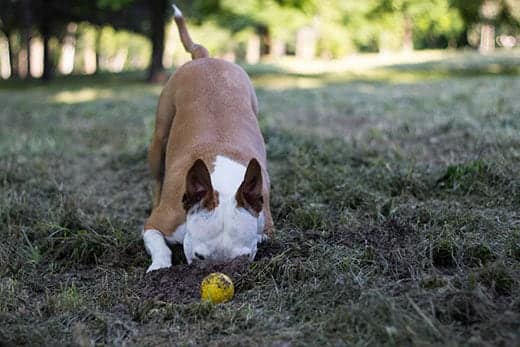
A number of factors could explain your dog's burying habit. Here are a few of the most common reasons for this typical dog behavior.
Hereditary Instinct
Why do dogs bury things? Oftentimes, it's because they're wired to. It's an instinct that they inherited from their ancestors. When they manage to hunt down or scavenge a big meal, they hide the leftovers by burying it in the ground, both to help preserve it and to protect it from other scavengers, says The Spruce Pets. Although domesticated dogs may get meals like clockwork and have no need to stash food for later, the instinctual behaviors passed down through their DNA tell them otherwise.
Breed
Although all dogs have this instinct at some level, it appears to be strongest in dogs that were bred to hunt small game. Terriers and smaller members of the hound group, like dachshunds, beagles and basset hounds, tend to have a high propensity toward digging and burying objects. These dogs were intentionally bred to retain more of their hunting instincts, and it appears likely that this includes the instinct to preserve their "catches."
Anxiety or Possessiveness
Dogs are often soothed by the act of digging. As such, those who feel anxious or insecure may turn to digging and burying objects as a coping mechanism for their anxiety. In a multi-dog household, dogs who feel like there's competition for food and other resources, like toys, might resort to hiding their stuff to keep it safe. This can especially be true of tiny dogs, like Chihuahuas, who fear having their things taken away by larger pets. If you have a little dog, this may explain why you find treats, chew toys and pieces of kibble stashed between the couch cushions or underneath the furniture.
Boredom
All of that can explain why dogs hide and bury their food and toys, but why do dogs bury stuff that isn't theirs? If your dog seems to get a kick out of burying your things, it might be because they're simply bored, and they're trying to get your attention. To your dog, burying your things is a fun game, and you're invited to play along.


Tasty Tips
Curbing the Impulse to Bury Things
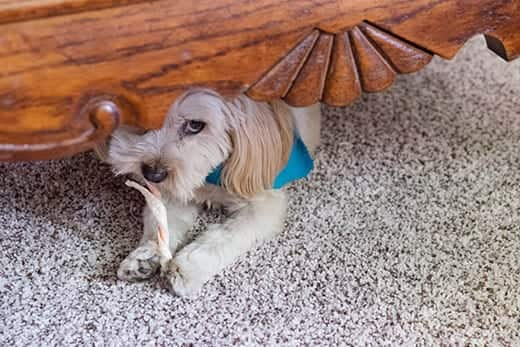
If your dog is making a habit of burying food or toys, it might be that they're being given too much at once, says American Kennel Club. Make sure you're not overfeeding or over-treating your dog and leaving them with a surplus of food that they feel like they need to save for later. And if they're burying toys instead of playing with them, try limiting the number of toys they have access to at one time, rotating them on a weekly basis. Exercising your dog regularly and providing them with plenty of attention can also help cut down on the impulse to dig — and reduce the temptation to steal and hide your stuff.
It's important to let dogs be dogs and give them opportunities to exercise their natural instincts. Rather than trying to train your dog not to dig and bury things at all, provide places both inside and outside where it's okay to exercise this behavior — a sandbox in the backyard or a pile of pillows and blankets inside, for instance — and turn it into a game of hide-and-seek that you can play together.


Jean Marie Bauhaus is a pet parent, pet blogger, and novelist from Tulsa, Oklahoma, where she usually writes under the supervision of a lapful of fur babies.
Related products
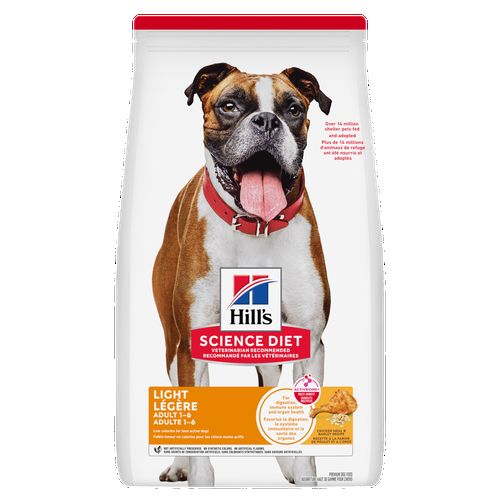
18% lower calories vs. Science Diet Adult

Hill's Science Diet Sensitive Stomach & Skin Small & Mini dry dog food is tailored nutrition for Small & Mini dogs while being gentle on stomachs. Nourishes skin & promotes a lustrous coat.

18% lower calories vs. Science Diet Large Breed Adult

Advanced nutrition to support hip & joint health from day 1
Related articles

Learn basic steps & precautions for treating a cut on your dog, including what you can put on the cut, and when you should take them to the vet.

Your dog's coat and skin are a big part of your dog's overall health. Ensure you keep your dog's coat healthy, by following these simple tips.

Discover how the field of dog science is giving us more and more insights into the inner workings of our furry best friends.

Learn how dogs with sensitive skin can have special dietary needs, how they can develop over time in a healthy dog, and how Hill's dog food can help.

Put your dog on a diet without them knowing
Our low calorie formula helps you control your dog's weight. It's packed with high-quality protein for building lean muscles, and made with purposeful ingredients for a flavorful, nutritious meal. Clinically proven antioxidants, Vitamin C+E, help promote a healthy immune system.
Put your dog on a diet without them knowing
Our low calorie formula helps you control your dog's weight. It's packed with high-quality protein for building lean muscles, and made with purposeful ingredients for a flavorful, nutritious meal. Clinically proven antioxidants, Vitamin C+E, help promote a healthy immune system.

